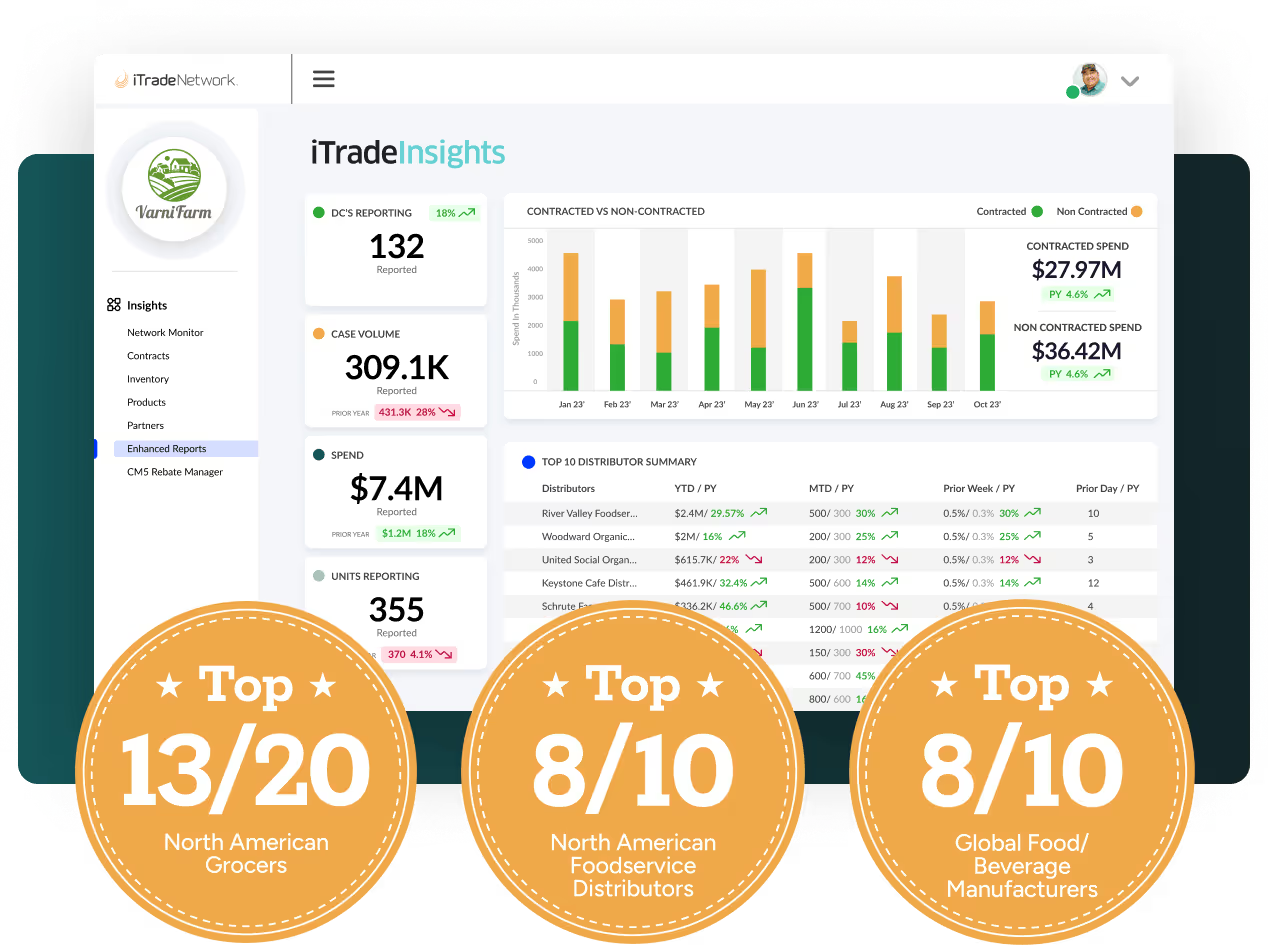From Liability to Responsibility: Why Food Safety is the Top Priority Now More Than Ever & Steps Manufacturers Can Take to Eliminate Food Safety Risks

Despite numerous efforts to ensure food safety, cases of food-borne illnesses continue to occur, leading to severe health consequences for consumers. According to the World Health Organization, it is estimated that one in ten people fall ill due to contaminated food, leading to 420,000 deaths every year. Urgency for increased food safety measures for food manufacturers has never been higher.
iTradeNetwork understands the severity and importance of staying up-to-date with consumer safety and constantly changing regulations. To help your company remain advanced of food safety initiatives and future regulations, we have compiled a list of seven things food manufacturers can do to increase food safety and protect your business:
Implement a Hazard Analysis and Critical Control Points (HACCP) System
This is a risk-based approach to food safety that identifies potential hazards and measures to control them. By implementing a HACCP system, food manufacturers can proactively identify and address potential food safety risks.
Invest in Technology
Food manufacturers can invest in technology that uses sensors and data analytics to monitor and analyze food safety data in real-time. This can help identify potential contamination issues before they become a problem.
Train Employees
Providing training to employees on food safety regulations, hygiene practices, and the importance of quality control is critical to ensuring the safety of the food they produce.
Conduct Regular Audits
Regular audits of food safety protocols can help identify areas for improvement and ensure that all employees are following proper procedures.
Collaborate With Suppliers
Collaboration with suppliers can help ensure the safety of the entire food supply chain. Food manufacturers can work with suppliers to ensure that they are following proper food safety protocols and are providing safe and high-quality ingredients.
Communicate With Consumers
Communicating with consumers about food safety issues and providing information about proper handling and storage of food products can help reduce the risk of foodborne illnesses once the product leaves the shelves.
Implement Traceability Systems
Traceability systems can help track food products from farm to fork, making it easier to identify the source of any contamination issues.
With iTradeNetwork, You’ll Be Ready
iTradeNetwork’s food quality inspection software ensures consistent produce quality by standardizing and guiding inspection processes, automating notifications, providing clear issue and vendor insights, and helping buyers source and procure the best product available on the market. By taking proactive measures, food manufacturers can increase food safety and ensure that the goods they produce are free from any harmful contaminants.
To learn more about how iTradeNetwork is helping businesses in the perishables industry improve food safety, get in front of upcoming regulations and collaborate with retailers and suppliers faster view our recent video.
Speak to an Expert
Take a closer look at the platform built for buyers and their trading partners

From Liability to Responsibility: Why Food Safety is the Top Priority Now More Than Ever & Steps Manufacturers Can Take to Eliminate Food Safety Risks
Despite numerous efforts to ensure food safety, cases of food-borne illnesses continue to occur, leading to severe health consequences for consumers. According to the World Health Organization, it is estimated that one in ten people fall ill due to contaminated food, leading to 420,000 deaths every year. Urgency for increased food safety measures for food manufacturers has never been higher.
iTradeNetwork understands the severity and importance of staying up-to-date with consumer safety and constantly changing regulations. To help your company remain advanced of food safety initiatives and future regulations, we have compiled a list of seven things food manufacturers can do to increase food safety and protect your business:
Implement a Hazard Analysis and Critical Control Points (HACCP) System
This is a risk-based approach to food safety that identifies potential hazards and measures to control them. By implementing a HACCP system, food manufacturers can proactively identify and address potential food safety risks.
Invest in Technology
Food manufacturers can invest in technology that uses sensors and data analytics to monitor and analyze food safety data in real-time. This can help identify potential contamination issues before they become a problem.
Train Employees
Providing training to employees on food safety regulations, hygiene practices, and the importance of quality control is critical to ensuring the safety of the food they produce.
Conduct Regular Audits
Regular audits of food safety protocols can help identify areas for improvement and ensure that all employees are following proper procedures.
Collaborate With Suppliers
Collaboration with suppliers can help ensure the safety of the entire food supply chain. Food manufacturers can work with suppliers to ensure that they are following proper food safety protocols and are providing safe and high-quality ingredients.
Communicate With Consumers
Communicating with consumers about food safety issues and providing information about proper handling and storage of food products can help reduce the risk of foodborne illnesses once the product leaves the shelves.
Implement Traceability Systems
Traceability systems can help track food products from farm to fork, making it easier to identify the source of any contamination issues.
With iTradeNetwork, You’ll Be Ready
iTradeNetwork’s food quality inspection software ensures consistent produce quality by standardizing and guiding inspection processes, automating notifications, providing clear issue and vendor insights, and helping buyers source and procure the best product available on the market. By taking proactive measures, food manufacturers can increase food safety and ensure that the goods they produce are free from any harmful contaminants.
To learn more about how iTradeNetwork is helping businesses in the perishables industry improve food safety, get in front of upcoming regulations and collaborate with retailers and suppliers faster view our recent video.
Unlock It Now!


